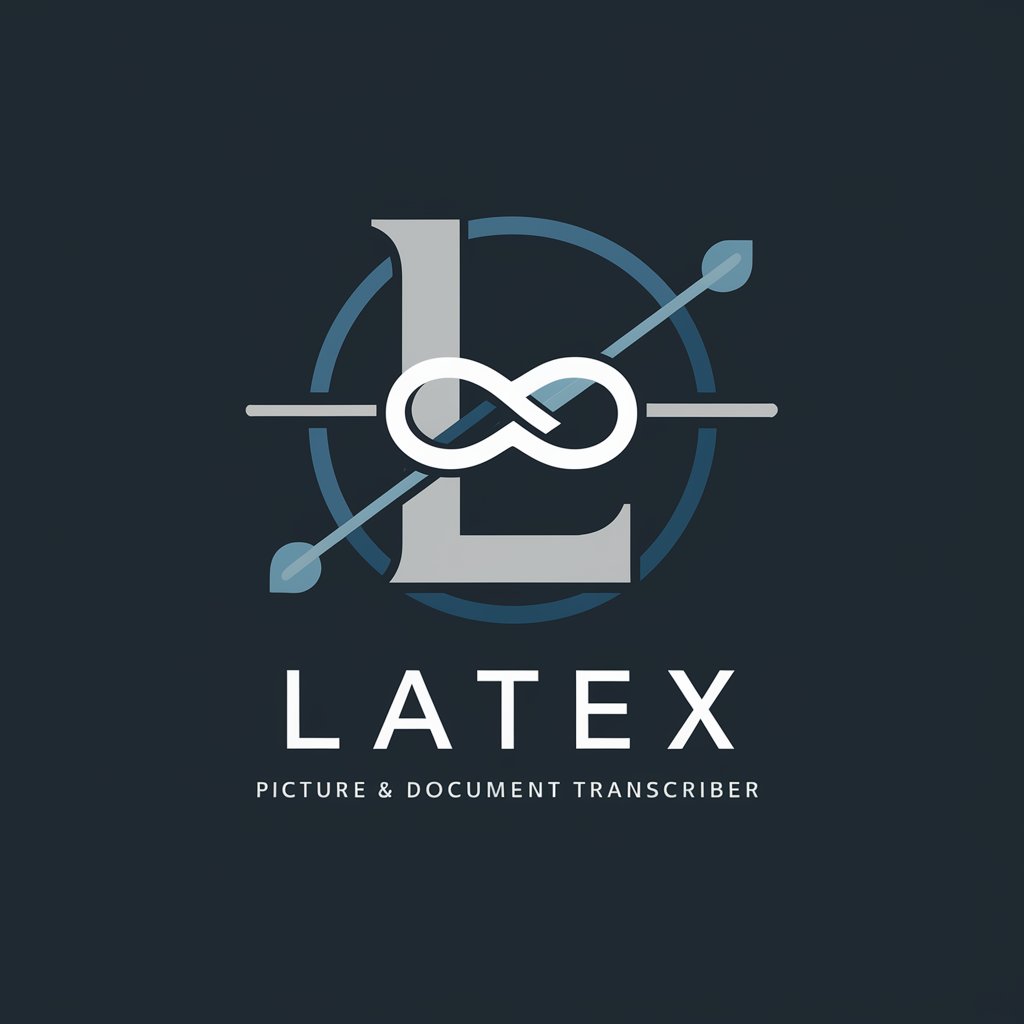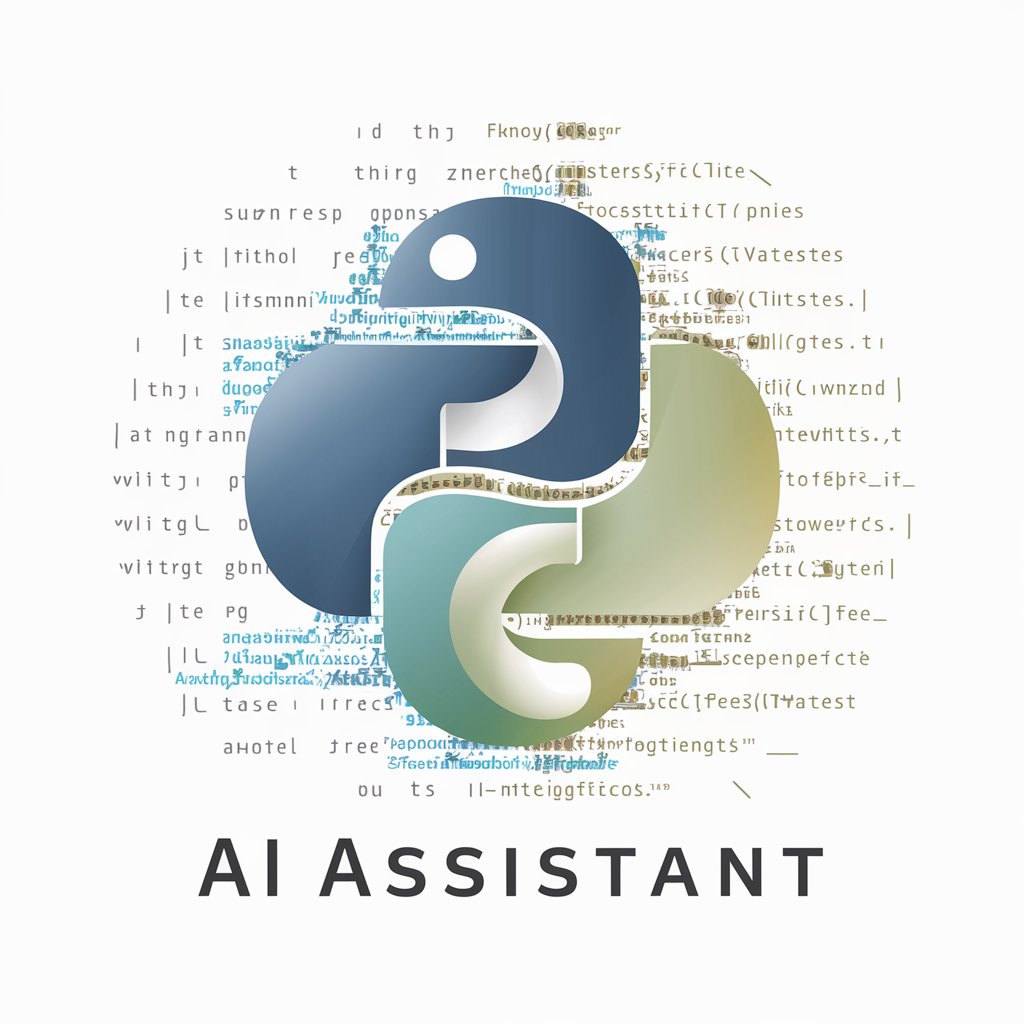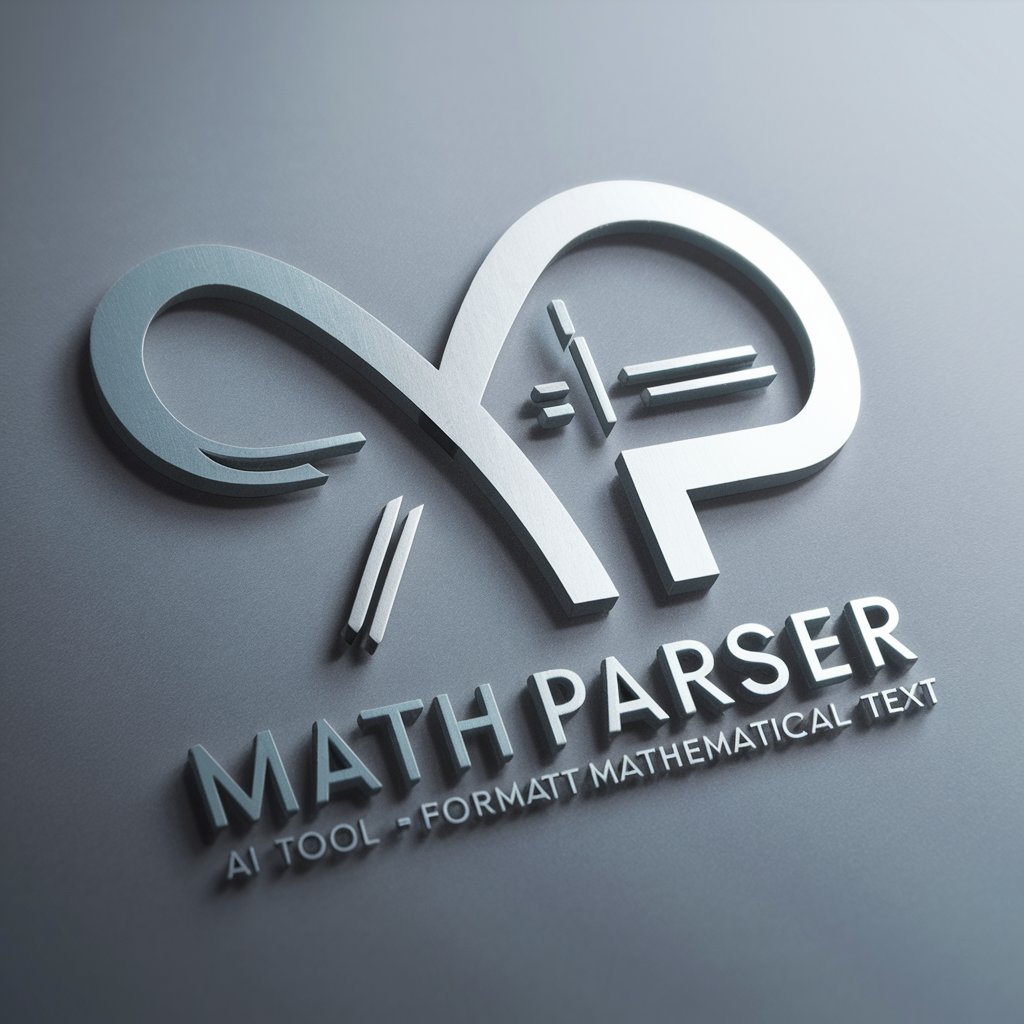9 GPTs for Scientific Documentation Powered by AI for Free of 2025
AI GPTs for Scientific Documentation refer to advanced machine learning models, specifically Generative Pre-trained Transformers, optimized for tasks in scientific research and documentation. These tools are designed to understand and generate human-like text, adapting to the specific needs of scientific fields. They assist in data analysis, hypothesis generation, research paper writing, and summarization of complex scientific material, offering tailored solutions that enhance efficiency and accuracy in scientific endeavors.
Top 8 GPTs for Scientific Documentation are: LaTeX Transcriber,Drafting Assistant,LaTeX Converter,LaTeX Math Assistant,Zut,Russian-English scientific translator,Math Parser,Latex
LaTeX Transcriber
Transcribing Text to LaTeX, Effortlessly

Drafting Assistant
Streamlining Your Drafting Process with AI

LaTeX Converter
Transform Text to LaTeX with AI Precision

LaTeX Math Assistant
Transforming Math into LaTeX, Effortlessly

Zut
Revolutionizing LaTeX with AI

Russian-English scientific translator
AI-powered precision for scientific translation

Math Parser
Simplify math to LaTeX with AI

Latex
Streamline Your Professional Typesetting

Key Attributes of AI GPTs in Science
These tools are distinguished by their versatility and adaptability, capable of handling simple to complex scientific tasks. Key features include advanced language comprehension, technical support for scientific jargon, integrated web searching for the latest research, image creation for scientific visualization, and robust data analysis capabilities. They excel in interpreting and generating technical content, making them indispensable in the scientific documentation process.
Intended Users of AI GPTs in Scientific Documentation
AI GPTs for Scientific Documentation are valuable for a wide audience including students, researchers, academic professionals, and science communicators. They cater to individuals with minimal coding experience, offering user-friendly interfaces, while also providing extensive customization options for those with programming skills. This versatility makes them an ideal tool for both educational purposes and professional scientific research.
Try Our other AI GPTs tools for Free
Mathematical Presentation
Discover AI GPTs for Mathematical Presentation: intuitive, adaptable AI tools transforming the way we create, interpret, and visualize mathematical content, designed for everyone from novices to professionals.
Technical Writing
Discover AI GPTs for Technical Writing: Tailored AI solutions transforming technical documentation with precision, adaptability, and ease.
Automated Data Processing
Explore AI GPTs for Automated Data Processing: Tailored, efficient, and versatile tools for transforming your data handling experience. Ideal for both novices and professionals in data-intensive sectors.
Custom CLI Tool Creation
Explore the transformative power of AI GPTs in Custom CLI Tool Creation. Unveil a world where intuitive interfaces meet customizable functionalities, tailored for a diverse range of users and tasks.
Educational Script Writing
Explore AI GPTs for Educational Script Writing: versatile, user-friendly tools for creating dynamic, tailored educational content, accessible to all.
System Administration Tasks
Revolutionize your system administration with AI GPTs tools. Automate tasks, enhance security, and improve efficiency with our adaptable and user-friendly AI solutions.
Further Perspectives on AI GPTs in Science
AI GPTs revolutionize scientific documentation by offering customized, efficient solutions. Their user-friendly interfaces facilitate seamless integration into existing systems, encouraging broader adoption across different sectors of scientific research. They exemplify the convergence of AI with scientific inquiry, paving the way for innovative approaches to research and data analysis.
Frequently Asked Questions
What exactly are AI GPTs for Scientific Documentation?
AI GPTs for Scientific Documentation are AI models designed to assist in creating, understanding, and summarizing scientific content. They are tailored for handling scientific language and concepts.
Who can benefit from using these AI GPT tools?
These tools are beneficial for students, researchers, and professionals in the scientific field, aiding in tasks ranging from research to documentation.
Do I need programming skills to use these tools?
No, these tools are designed with user-friendly interfaces for those without coding skills, but they also offer customization options for those with technical expertise.
Can these tools help in writing scientific papers?
Yes, they can assist in drafting, editing, and summarizing scientific papers, making the writing process more efficient.
How do these tools handle complex scientific terminology?
AI GPTs are trained on extensive scientific literature, enabling them to understand and use complex terminology accurately.
Are these tools capable of data analysis?
Yes, they can perform data analysis tasks, interpret results, and help in hypothesis generation.
Can AI GPTs integrate with existing scientific databases or tools?
Many AI GPTs are designed to integrate with existing databases and tools, enhancing their functionality in the scientific research process.
What makes AI GPTs unique in the field of scientific documentation?
Their ability to process and generate scientific language accurately and their adaptability to various scientific domains make them unique.